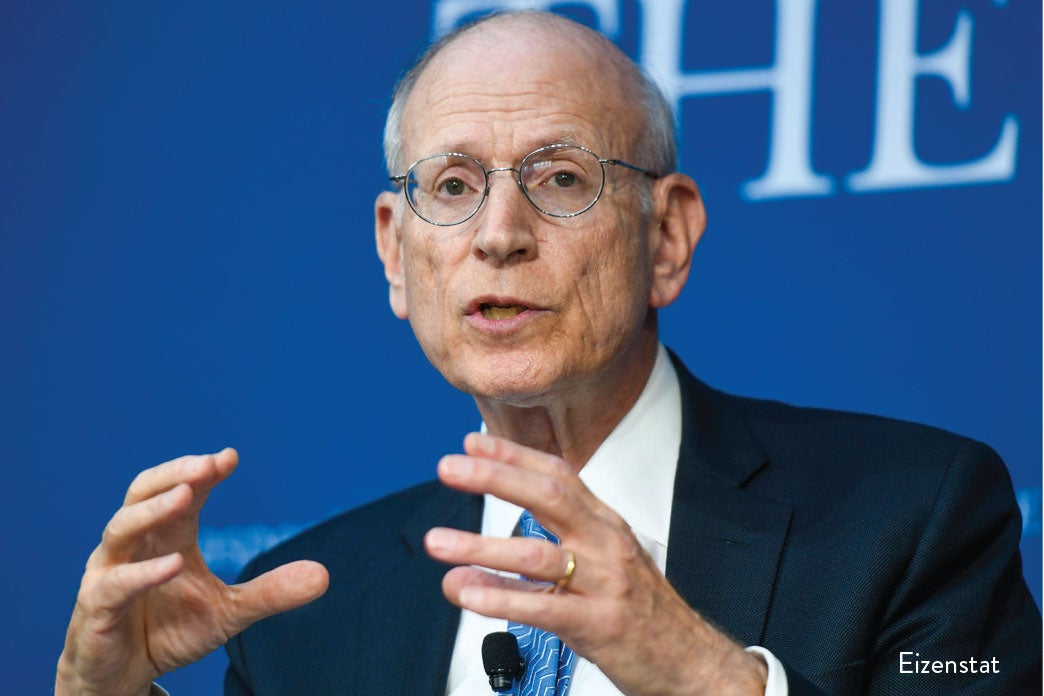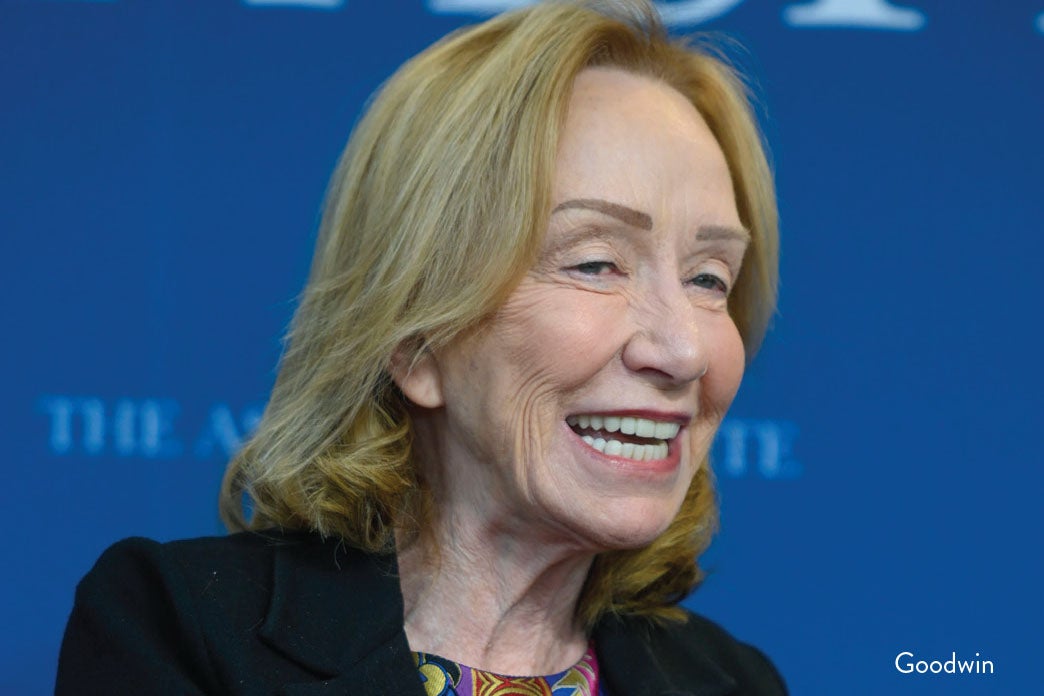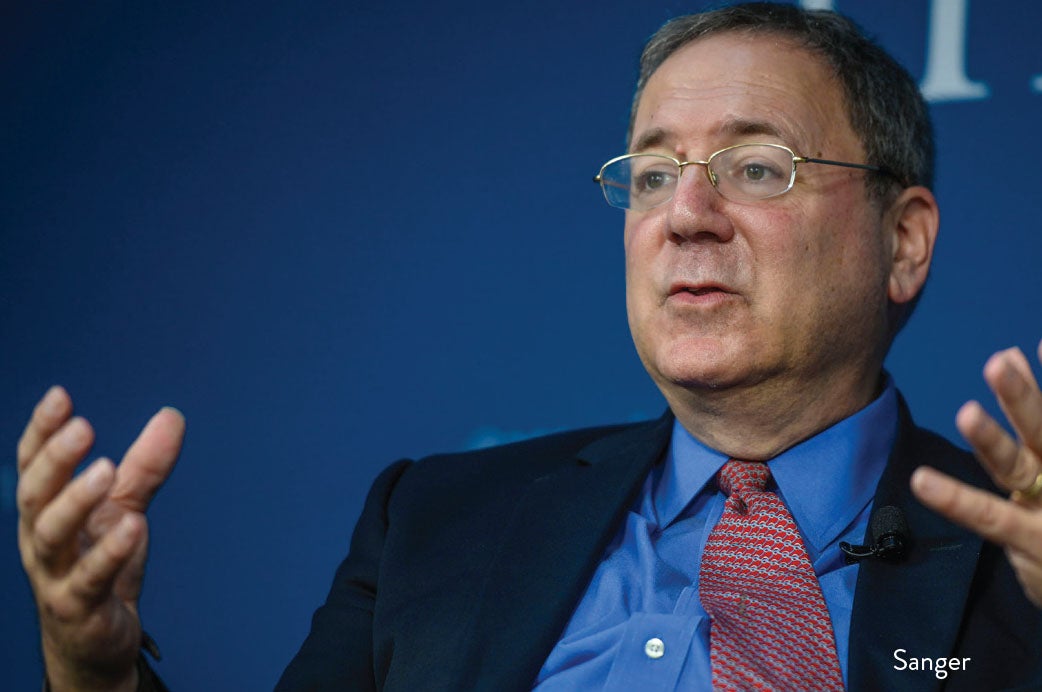Each year, the Alma and Joseph Gildenhorn Book Series highlights new books of particular resonance at a given moment in time. The Washington Ideas Roundtable Series also brings in authors who are transforming how we think about vital topics. This year, both of these Institute programs looked at lessons from the past, with books that explore prior presidencies. And they looked at the hurdles ahead, with books that examine the next generation of students and their devices. Below are just a few highlights.
Stuart Eizenstat
 Former chief domestic policy adviser to President Jimmy Carter
Former chief domestic policy adviser to President Jimmy Carter
President Carter: The White House Years
“Carter had a very odd view of politics and it caught up with him. His view was: I’m a ferocious campaigner, a hundred days in Iowa alone before the caucuses. He did what he had to do to win the election. But then, he viewed politics as something you parked at the Oval Office door, and you do the right thing. That was a strength and a weakness. It was a strength because he could do the Vietnam stuff, he could do the Panama Canal Treaty, he could do the Middle East, he could do energy—all of which was unpopular. The weakness was, the president is not only commander-in-chief; he is politician-in-chief. He has to nurture a coalition and keep it together so it stands behind him in good times and in bad, and that was Carter’s weakness.”
Doris Kearns Goodwin
 Pulitzer Prize–winning author and historian
Pulitzer Prize–winning author and historian
Leadership in Turbulent Times
“Curiosity is huge for leadership. Abraham Lincoln only had 12 months of full schooling, but he scoured the countryside for books. When he got a copy of Aesop’s Fables or the King James Bible, he was so excited. Books gave him a sense of another life beyond his own. They gave him a vision that there was another way to be. Though he never would go to Europe, he went with Shakespeare’s kings to merry England; he went with Lord Byron’s poetry to Spain and Portugal. Literature allowed him to transcend his surroundings. And the rhythms he put into his great speeches came from poetry and drama.”
Arne Duncan
 Former US secretary of education
Former US secretary of education
How Schools Work: An Inside Account of Failure and Success from One of the Nation’s Longest-Serving Secretaries of Education
“In the United States, about 70 percent of wealthier students complete college, when only about 9 percent of poorer students do. This is a staggering difference that perpetuates our national crises of wealth disparity and the lack of economic mobility. Today in America, talent is more evenly distributed than opportunity. For a country that’s supposed to be the world’s leading democracy, that’s not just wrong; it’s immoral. Other countries are doing so much more to increase college graduation rates across all levels of society. We must set similar, ambitious goals. Our economy and our society cannot remain competitive with so much squandered talent and so many undereducated Americans.”
David Sanger
 National security correspondent for The New York Times
National security correspondent for The New York Times
The Perfect Weapon: War, Sabotage and Fear in the Cyber Age
“Our vulnerabilities are growing faster than our defenses can keep up. First, 85 percent of our networks are in the private sector, so it’s not like the government can just mandate significant change. Second, your house is getting fuller and fuller of internetconnected devices. Ten years ago, you probably had one or two things connected to the internet—a laptop and a desktop computer. Today, you have your Alexa, your alarm system, one or more smart TVs, a FitBit, your iPhone, the four previous iPhones you have stuck in your desk drawer, your internet-connected refrigerator. You have all of those things connected, and every one of them is creating a bigger and bigger attack surface. So the problem is growing exponentially.”